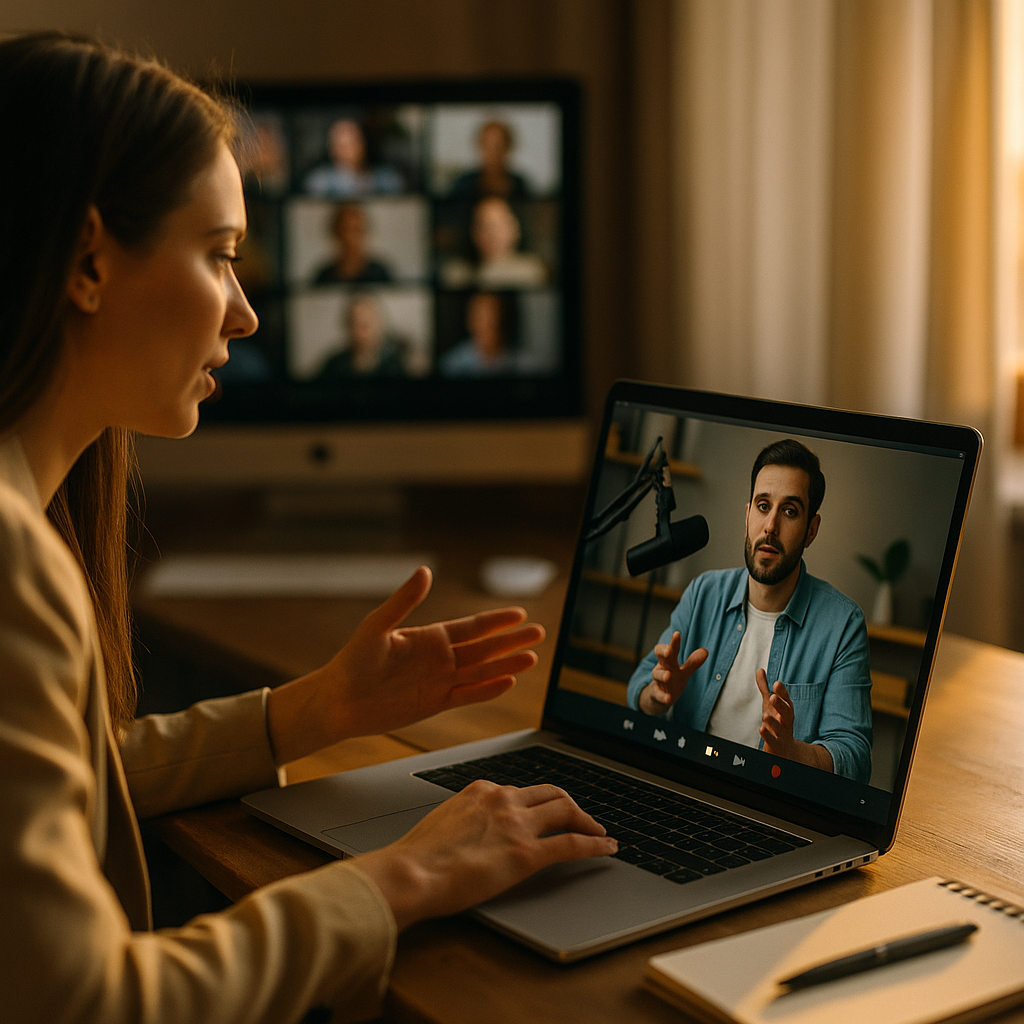Looking to maximize attendance and engagement for your upcoming digital conference? Building the right playbook for using influencers to promote a B2B virtual event can transform your registration numbers, enhance brand credibility, and spark genuine audience interaction. Read on to discover practical, high-impact strategies for harnessing influential voices to ensure your virtual event stands out—and sells out.
Why B2B Influencer Collaboration Matters for Virtual Events
In today’s digital-first marketplace, traditional promotional tactics alone often fall flat. B2B influencer collaboration injects authenticity and trust into your messaging, tapping into established networks of loyal followers. According to a 2024 Demand Gen Report, 55% of B2B buyers say thought leaders strongly influence purchase decisions. When respected experts vouch for your event, attendance and participation increase substantially.
Moreover, influencers amplify reach faster than brand channels alone. Their tailored endorsements foster discussion and credibility, helping brands overcome skepticism. Especially for virtual events—where digital noise is high—influencers can break through with content that resonates.
How to Identify the Right B2B Influencers for Event Promotion
Effective event promotion with influencers begins with selecting collaborators whose expertise and audience align with your event theme and goals. Go beyond follower counts; identify influencers who:
- Align closely with your event’s industry and subject matter.
- Engage audiences similar to your target registrants.
- Demonstrate genuine influence through comments, shares, and thought leadership engagement.
- Participate regularly in professional discussions (e.g., on LinkedIn, X).
Leverage platforms like BuzzSumo or LinkedIn Sales Navigator to shortlist candidates. Validate their authenticity by reviewing their content history, tone, and ethical standards. Collaborating with micro-influencers or niche thought leaders often yields higher conversion rates over generic big names.
Crafting a B2B Influencer Partnership Strategy
A winning B2B influencer partnership strategy hinges on aligning objectives and incentives for both sides. Clearly define:
- Key messages: Explain the event’s value proposition and what attendees will gain.
- Content formats: Decide if influencers will post articles, short videos, interviews, or LinkedIn posts.
- Timeline: Build a promotion calendar, including save-the-date teasers and countdown content.
- Compensation: Offer value commensurate with influence, whether financial, free tickets, speaking roles, or exclusive networking opportunities.
Transparency and trust are vital. Share expectations, encourage co-creation, and enable influencers to put their own authentic spin on content. Monitor progress and adapt as needed to keep efforts aligned with your registration and engagement KPIs.
Best Practices for Influencer-Led Virtual Event Promotion
Modern virtual event promotion best practices with influencers blend strategic planning with creativity. Implement the following for maximum returns:
- Create bespoke content: Encourage influencers to share personal stories about event topics or interview keynote speakers.
- Leverage video and livestreams: Host LinkedIn Live Q&As or behind-the-scenes tours with influencers to humanize your brand and build excitement.
- Use branded hashtags and trackable links: Enable granular measurement of influencer-driven registrations.
- Foster community: Encourage influencers to initiate pre-event discussions, polls, or challenge posts to build anticipation and engagement.
- Integrate across channels: Repurpose influencer content for your owned media—newsletters, landing pages, and audience emails drive further amplification.
Measurement is critical. Continuously analyze which influencer activities drive awareness, traffic, and conversions using UTM tracking and event platform analytics. Adjust your campaign in real time for optimal results.
Measuring ROI from Influencer-Driven B2B Event Campaigns
Evaluating influencer-driven B2B event campaigns ensures every partnership delivers tangible business value. Set up these metrics from the outset:
- Registrations attributed: How many sign-ups came specifically via influencer links or discount codes?
- Engagement: Track likes, shares, comments, and qualitative feedback on influencer posts.
- Attendance rate: Do influencer-driven registrants actually attend the live event?
- Pipeline impact: Post-event, assess how many influencer-attracted attendees converted to leads or sales opportunities.
Use dashboards like HubSpot, Salesforce, or Google Analytics 4 to centralize data and provide regular updates. After your event, debrief with all partners. Share outcomes and gather influencer feedback to refine future campaigns—building a cycle of continuous improvement.
Long-Term Influencer Relationship Building Beyond Your Virtual Event
The most successful virtual event influencer partnerships grow beyond one-off campaigns. Sustain relationships with top-performing influencers by:
- Inviting them for post-event panel recaps or podcast guest spots.
- Offering early access to future product launches or exclusive research insights.
- Celebrating shared successes on social media and in case studies.
- Providing feedback on the impact of their involvement and gathering their suggestions for future collaboration.
These ongoing relationships not only drive repeat attendance for your next event but also reinforce your brand’s standing as an industry leader trusted by influential voices.
FAQs: Influencer Strategies for B2B Virtual Event Promotion
-
How do I find credible B2B influencers for my event?
Research LinkedIn, industry forums, and digital platforms like BuzzSumo. Seek out individuals who create thought leadership content relevant to your industry and have an engaged, professional following.
-
Can micro-influencers be effective for B2B virtual events?
Absolutely. Micro-influencers often have highly trusted voices in niche sectors. Their targeted audiences mean your event message can drive higher conversion rates and more meaningful engagement.
-
What’s the best way to measure influencer ROI for my virtual event?
Track specific metrics such as registrations from tracked links, social engagement stats, in-event participation, and post-event conversions. Use analytics tools to attribute results directly to influencer activity.
-
How early should I engage influencers before my virtual event?
Start outreach at least two to three months prior. This allows time for content planning, co-creation, and phased promotion to build ongoing momentum as your event approaches.
-
Should influencers speak or host at the event, or just promote it?
Both options are valuable. Including influencers as moderators, panelists, or hosts can boost credibility and attract audiences. Combine on-event participation with pre-event promotion for the best effect.
To summarize, building a playbook for using influencers to promote a B2B virtual event is essential for driving real results in 2025. Start early, choose the right partners, co-create dynamic content, and measure results for a successful, memorable digital gathering that moves your business forward.
